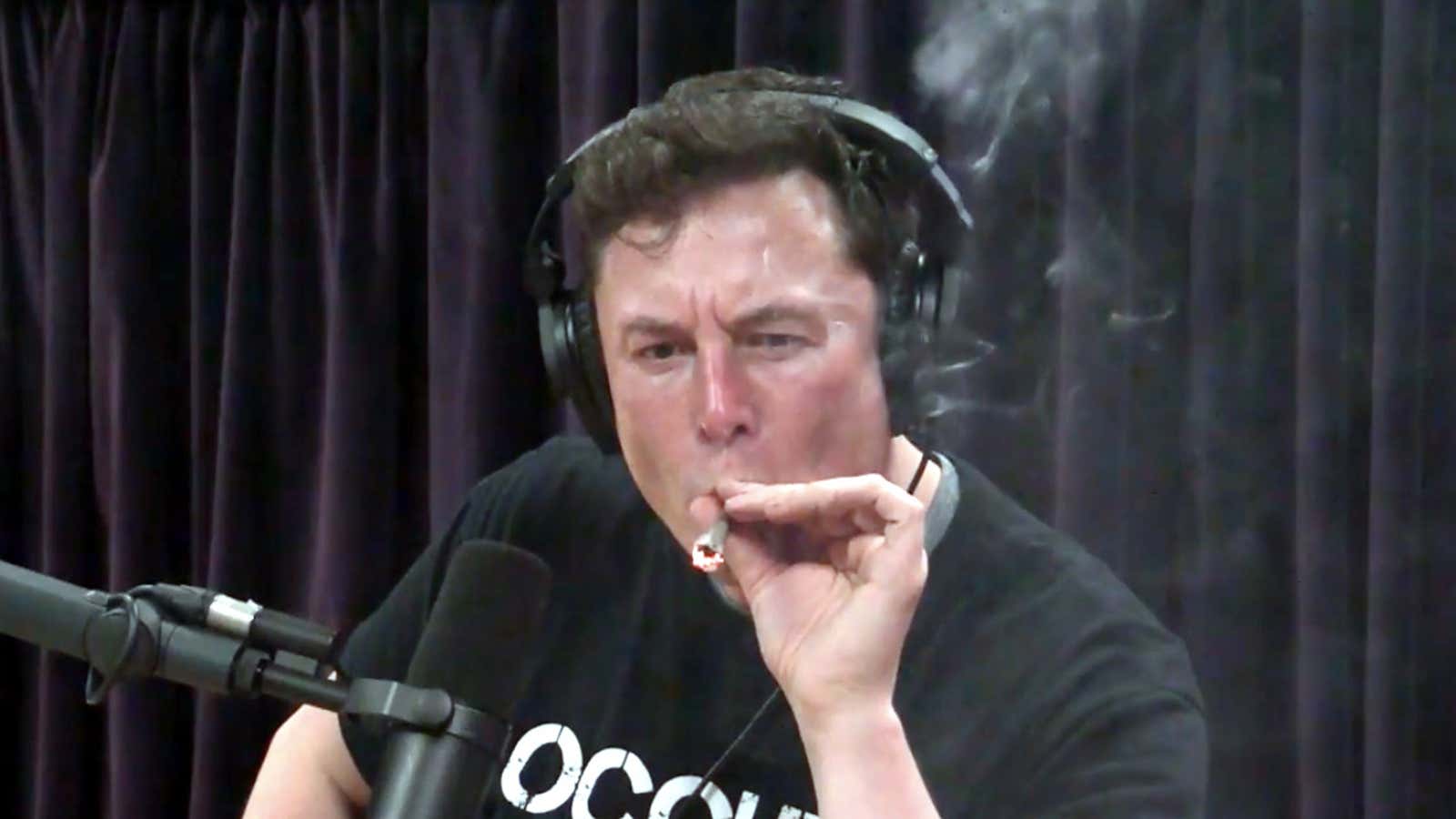NASA will investigate SpaceX’s safety culture, along with that of its rival Boeing, in a strenuous review prompted by Elon Musk’s public marijuana use.
In an interview with the Washington Post, which first reported the investigation, NASA’s top human spaceflight executive Bill Gerstenmaier said the “pretty invasive” review would focus on the safety culture at SpaceX and Boeing, and would involve hundreds of employee interviews.
Musk’s cannabis use on a live-streamed podcast irked NASA executives, some who have military backgrounds, and others who resent Musk’s critiques of the traditional space program. The drug-tinged culture clash is emblematic of conflict between government bureaucracy and Silicon Valley-inspired spaceflight.
Now, as SpaceX nears an opportunity to carry US astronauts into orbit, scrutiny is increasing, especially after Musk’s erratic 2018, which saw him removed as chairman of Tesla in a settlement over potential securities law violations.
“We need to show the American public that when we put an astronaut on a rocket, they’ll be safe,” NASA administrator Jim Bridenstine, a proponent of commercial space partnerships, told the Post.
Federal contractors like SpaceX, whose staff has worked side-by-side with NASA engineers for a decade, are required to institute rules requiring drug-free workplaces. The space agency confirmed that it would be “conducting a cultural assessment study in coordination with our commercial partners to ensure the companies are meeting NASA’s requirements for workplace safety, including the adherence to a drug-free environment.”
NASA did not respond to questions about what prompted the review. Earlier this month, it certified SpaceX to fly its most expensive and critical missions.
“SpaceX actively promotes workplace safety and we are confident that our comprehensive drug-free workforce and workplace programs exceed all applicable contractual requirements,” SpaceX said in a statement. “We take seriously the responsibility that NASA has entrusted in us to safely and reliably carry American astronauts to and from the International Space Station.”
While the assessment is unrelated to technical challenges Boeing and SpaceX face to ensure their spacecraft will fly safely, the review may delay test flights and allow Boeing to become the first private company to carry astronauts to the International Space Station.
Musk’s drug use—legal under California law, but not under federal statutes—did not occur during his work at SpaceX, but it apparently raised enough questions about his role as “chief designer” that agency officials decided a company-wide investigation was merited.
When NASA first hired SpaceX in 2008 to fly cargo to the ISS, Musk was seen as vital enough that the agency required the company to obtain “key man” insurance covering him.
SpaceX’s culture has been criticized in the past, especially after the loss of two rockets in 2015 and 2016, but for pushing too hard, not drug use. SpaceX has a relentless culture of long hours that has led some employees to complain about burnout. After the 2015 mission for NASA failed, SpaceX instituted a company-wide restructuring to improve reliability.
“In the early days it was long hours, I remember burning the midnight oil with Elon, come 11 pm we’d all hop off and play play Quake III Arena for a couple hours to burn off some steam, but those days are behind us,” Brian Bjelde, the company’s head of HR, told me in 2016, when he said most employees worked between 50 and 57 hours per week.
